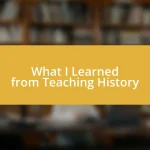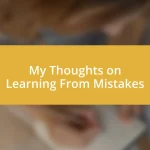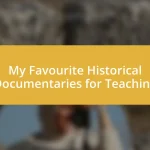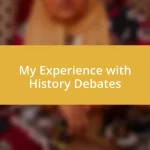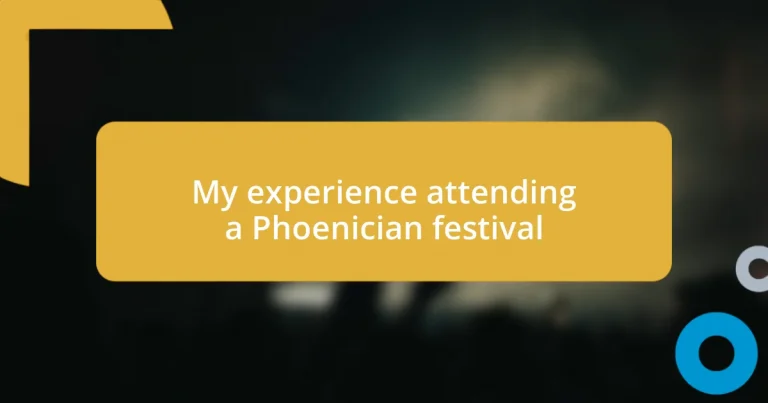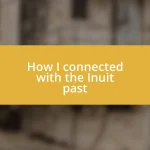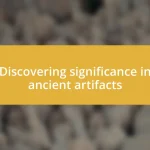Key takeaways:
- Phoenician festivals celebrate ancient maritime culture through music, food, and artisan crafts, creating a vibrant communal experience.
- The Phoenicians significantly contributed to commerce, navigation, and written language, with their cultural practices still influencing modern society.
- Participating in the festival fosters a deeper connection to history and traditions, reminding attendees of the values and achievements of their ancestors.
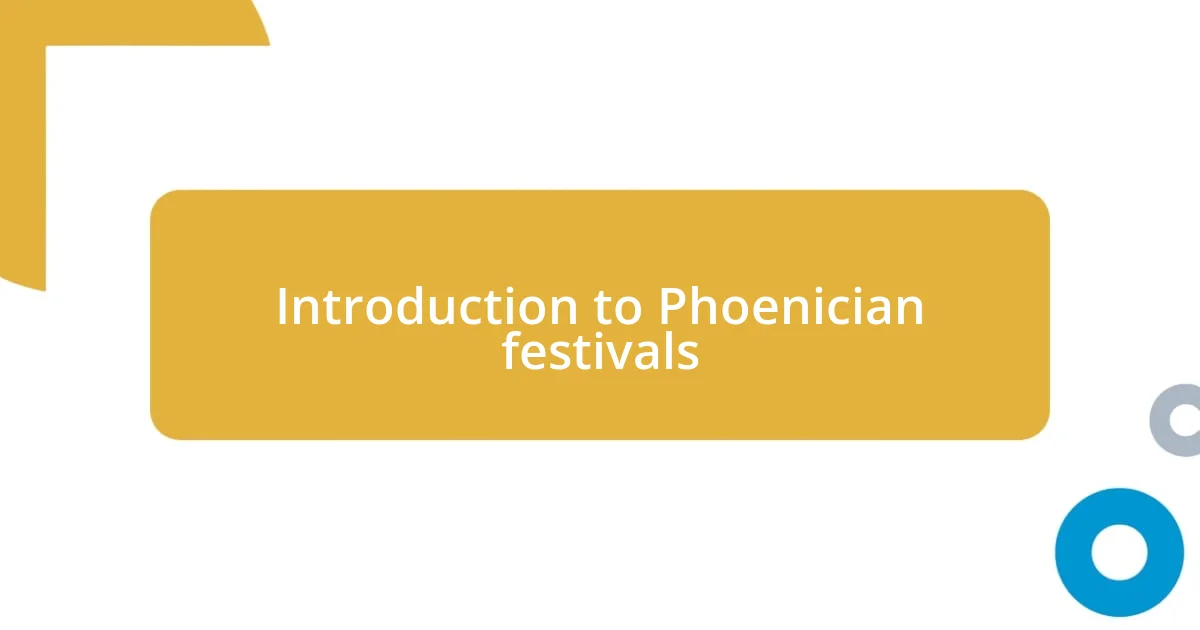
Introduction to Phoenician festivals
Phoenician festivals, rooted in the ancient cultures of the Mediterranean, celebrate the rich heritage of a civilization known for its seafaring, trade, and incredible craftsmanship. Attending one of these festivals is like stepping back in time, where the vibrant atmosphere is filled with the scents of exotic spices and the sounds of traditional music. Isn’t it fascinating how festivals can serve as a bridge connecting us to our ancestors?
Each festival is a colorful tapestry woven from ancient rituals, music, dance, and, of course, delicious food. I remember the thrill of watching performers clad in traditional attire, reenacting stories that have been passed down through generations. You can’t help but feel a surge of pride and a connection to a history that feels so alive in those moments. Have you ever felt that connection at a cultural event?
What strikes me most about these gatherings is their ability to unite communities, both old and new. There’s a shared heartbeat in the air—everyone coming together to celebrate their roots and the traditions they hold dear. It reminded me of the first time I tasted authentic Phoenician dishes; it wasn’t just a meal, it was a moment steeped in history, evoking a sense of belonging that is hard to find elsewhere.
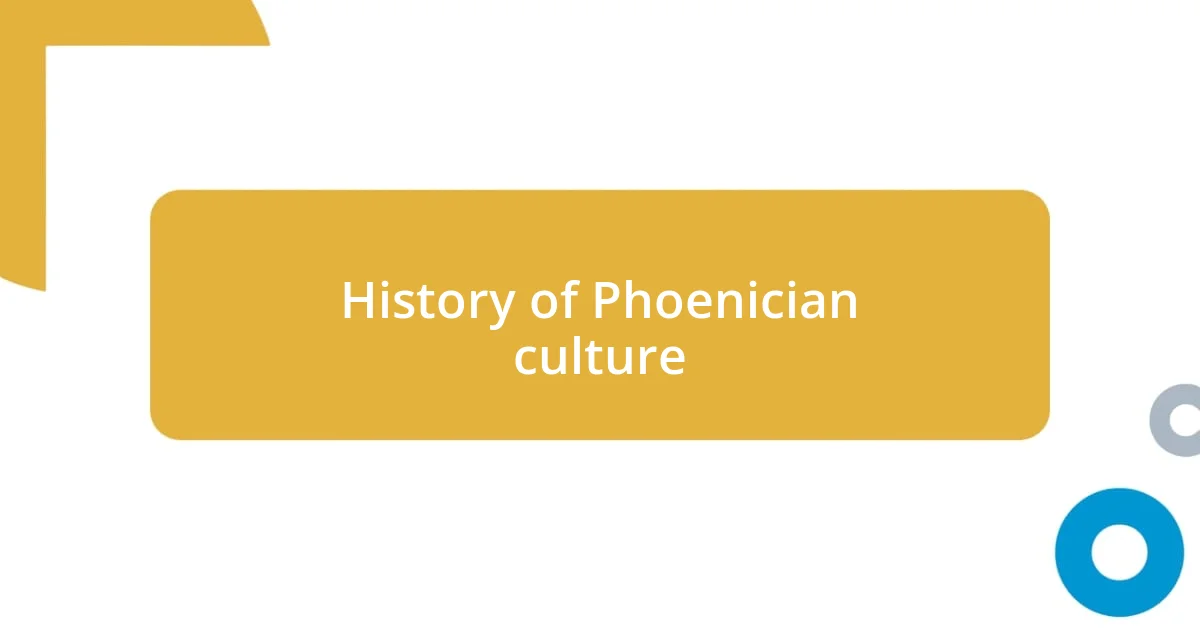
History of Phoenician culture
Phoenician culture, flourishing from around 1500 to 300 BC, was a cornerstone of the ancient Mediterranean world. Their mastery in maritime trade and exploration not only established thriving city-states like Tyre and Sidon but also created a vast network of cultural exchange. When I visited a Phoenician festival, I couldn’t help but admire how deeply intertwined their legacy is with our modern understanding of commerce and navigation.
- Known for their innovative shipbuilding, the Phoenicians revolutionized trade with advanced maritime techniques.
- Phoenician craftsmen were celebrated for their purple dye, which was highly sought after and drove much of their trade.
- Their development of the alphabet laid the groundwork for modern writing systems, showcasing their intellectual influence.
- The religious practices of the Phoenicians, often centered around deities like Baal and Astarte, provide insight into their values and societal structure.
As I walked through the festival, I marveled at craftspeople demonstrating techniques dating back millennia. The joy of observing firsthand the skills that once belonged to an ancient civilization filled me with a sense of wonder. It’s incredible to think that events like these help preserve the spirit of Phoenician culture, allowing us to connect with a history and a people who were pioneers in so many ways.
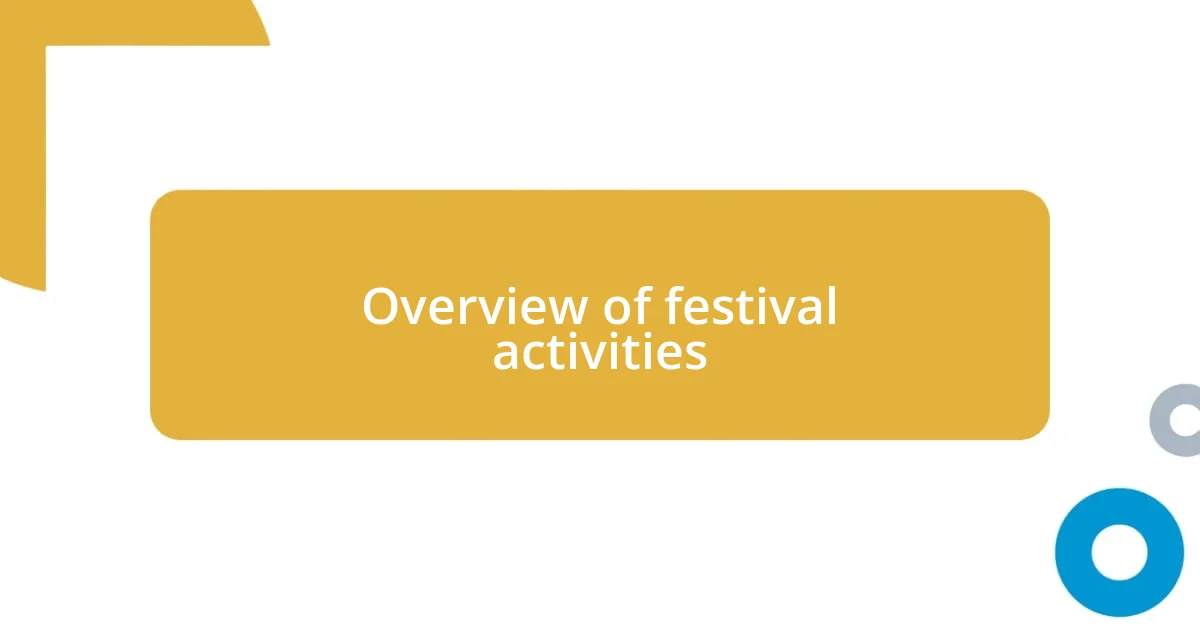
Overview of festival activities
The festival activities are truly a vibrant showcase of Phoenician culture. One of the highlights for me was the traditional music performances. The deep, resonant notes from the lyres and the rhythmic beats of the drums pulled everyone in, creating a communal experience that felt electric. I remember dancing along, my heart beating in sync with the music, connecting with both the artists and the crowd. It’s moments like these that remind you how music transcends time.
The culinary offerings were equally captivating, featuring an array of Phoenician-inspired dishes. I was particularly taken with the incredible spices used in the lamb and the lovely sweetness of the pomegranate. Each bite felt like a culinary adventure, steeped in history. Sharing these dishes with friends at the festival made me appreciate how food weaves together community and tradition. Isn’t it amazing how flavors can evoke such strong emotions and memories?
Additionally, I thoroughly enjoyed the artisan displays. Craftspeople skillfully demonstrated ancient techniques, from pottery to textile weaving, which felt like a living museum. I watched a potter at work, and the way the clay transformed under his hands was mesmerizing. It reminded me that these skills have been passed down through generations, creating a bridge between our present and the rich past of the Phoenicians.
| Activity Type | Description |
|---|---|
| Music Performances | Traditional songs and dances reflecting Phoenician heritage. |
| Culinary Experiences | Authentic dishes showcasing Phoenician flavors and techniques. |
| Artisan Demonstrations | Live craft displays illustrating ancient Phoenician skills. |
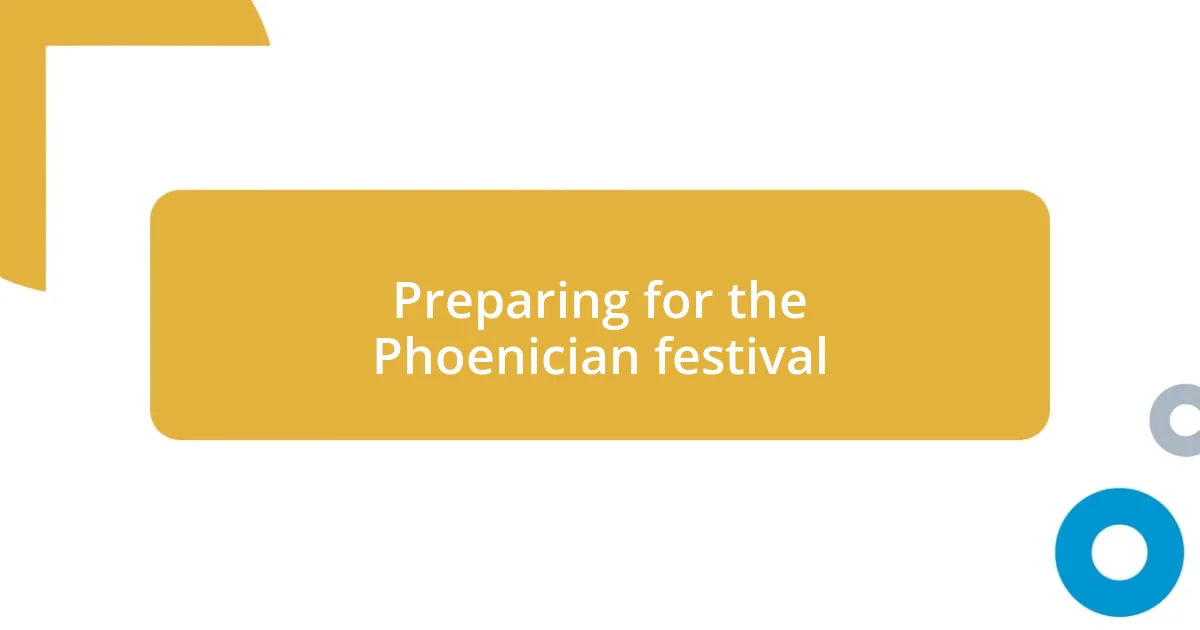
Preparing for the Phoenician festival
The preparations for the Phoenician festival were an adventure in themselves. As I gathered my outfit for the event, I chose vibrant colors inspired by the signature Phoenician purple. The excitement of embodying a piece of history made the anticipation all the more thrilling. Can you imagine stepping into a crowd while wearing the colors of an ancient civilization? It felt like connecting with the very essence of the Phoenicians.
In the days leading up to the festival, I immersed myself in the culture by reading about ancient Phoenician customs and practices. I spent evenings considering the significance of their rituals, especially those dedicated to deities they revered. This background not only helped me understand the festival activities better but also made me eager to participate fully. Have you ever felt that surge of energy from knowing you’re part of something much larger than yourself? It’s a transformative experience.
On the day of the event, I made sure to arrive early to catch the preparations. I remember bustling through the marketplace filled with artisans setting up their booths, each showcasing their craft with pride. The atmosphere buzzed with anticipation—what a delightful chaos! I was struck by how this collective effort brought together people of all ages, all united by a love for sharing and preserving Phoenician heritage. It made me reflect on how festivals like this not only celebrate the past but also forge connections in the present.
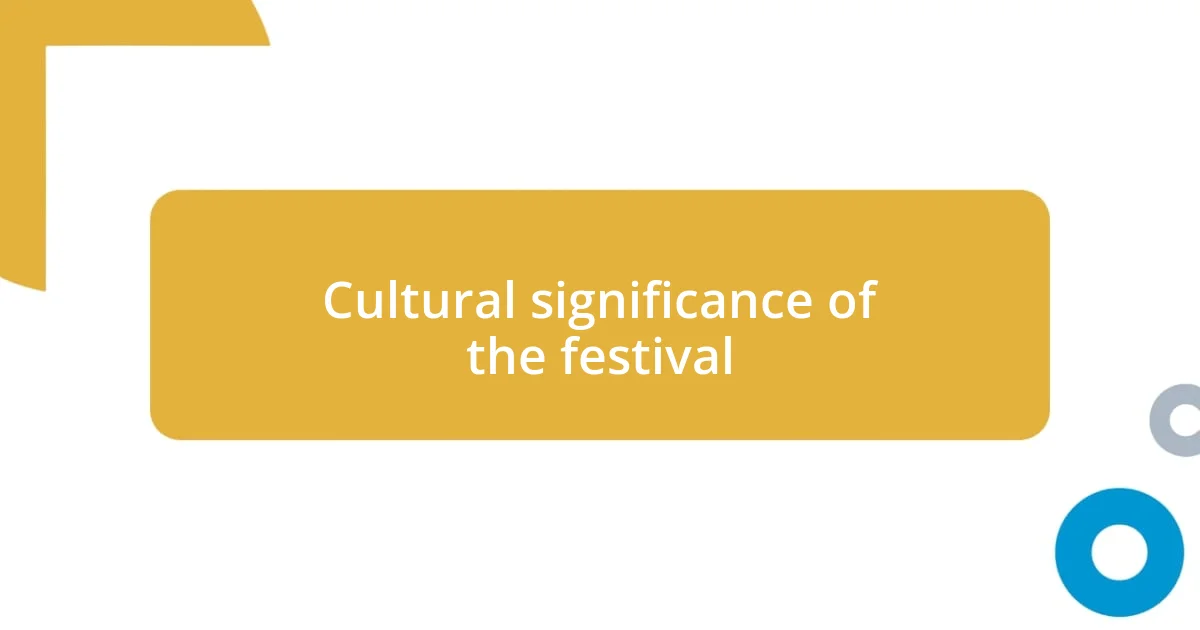
Cultural significance of the festival
The cultural significance of the Phoenician festival is immense, as it serves as a living testament to the richness of a civilization that thrived thousands of years ago. While wandering through the festively decorated streets, I felt a profound sense of kinship with the Phoenicians. Their legacy, marked by exploration and trade, was palpable, reminding me of how interconnected our world still is today. Isn’t it fascinating to ponder how their innovations in navigation and commerce still influence us?
One of the most memorable aspects was the storytelling sessions, where narrators recounted tales of ancient voyages and legendary figures. I found myself entranced, leaning in closer, eager to absorb every detail. These stories, passed down through time, weren’t just entertainment; they were a vehicle for cultural transmission. I couldn’t help but reflect on how stories shape our identities, bridging generational gaps and reinforcing our shared heritage. Do you ever think about the tales that connect you to your own history?
Engaging with the performers, who dressed in traditional attire, was another highlight that deepened my appreciation for Phoenician culture. I remember one delightful moment during a reenactment of a trade negotiation, where the actors vividly portrayed the tensions and triumphs of their ancestors. It struck me that festivals like this do more than celebrate history; they encourage us to reflect on the values that define us. How often do we acknowledge the struggles and achievements of those who came before us? Embracing this awareness can inspire us to carry forward their legacy into our modern lives.




